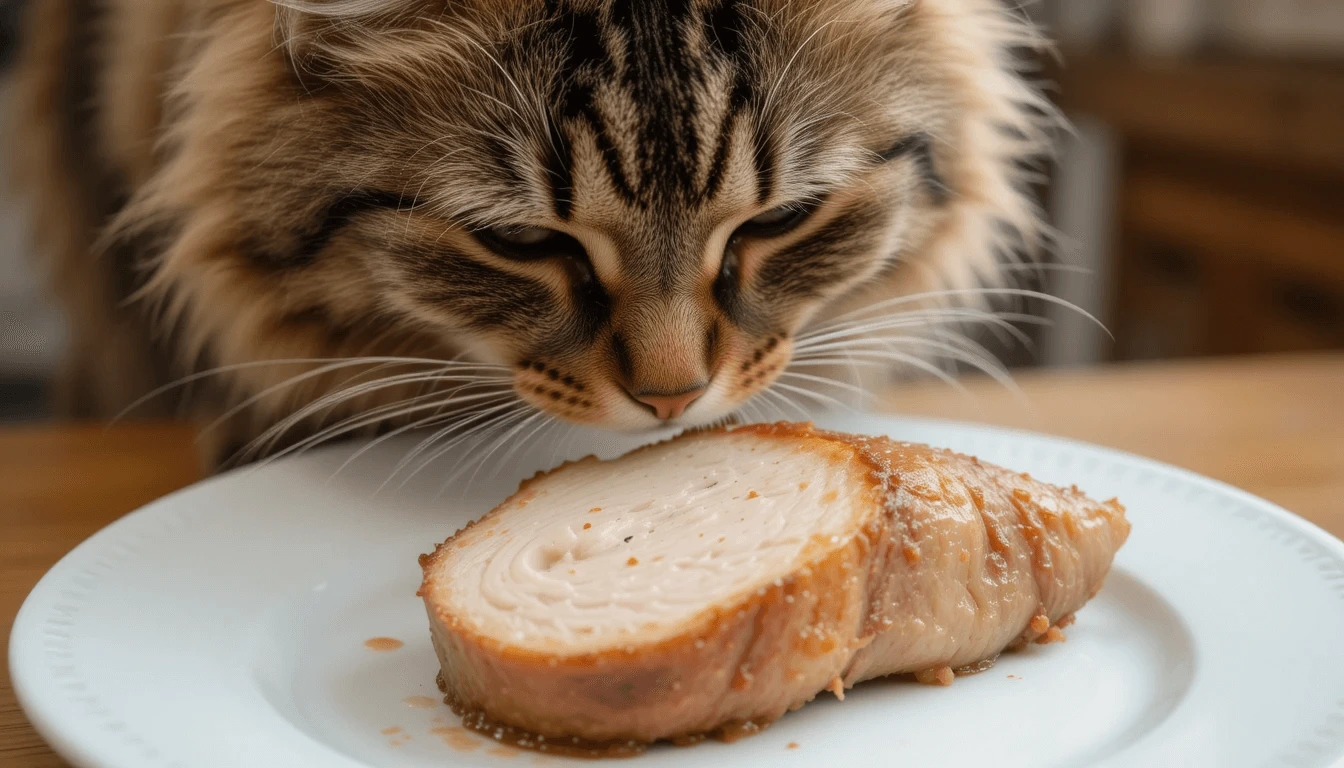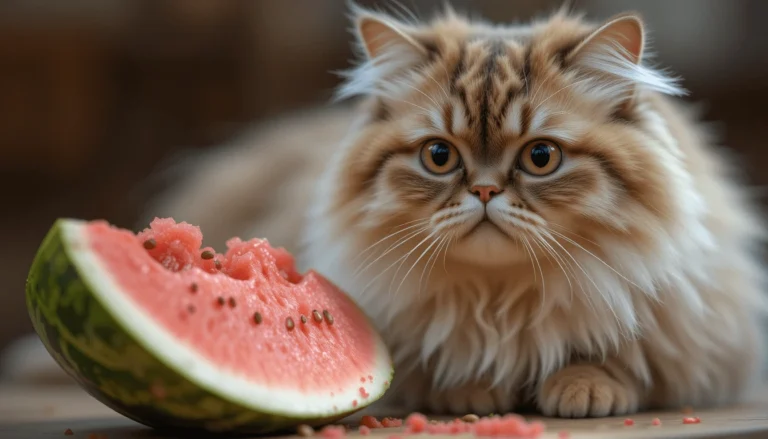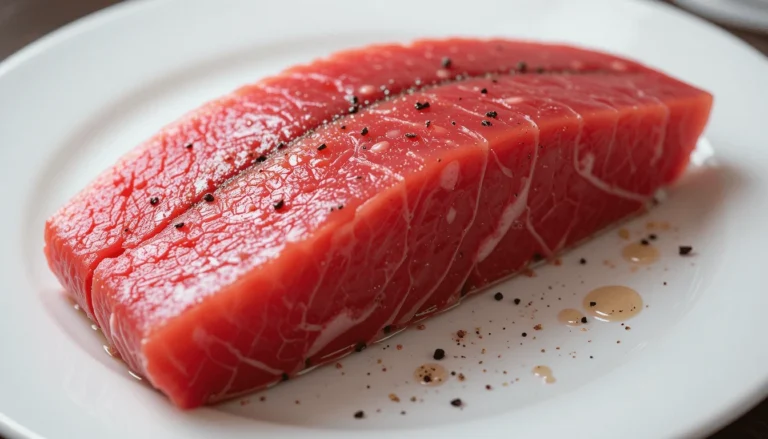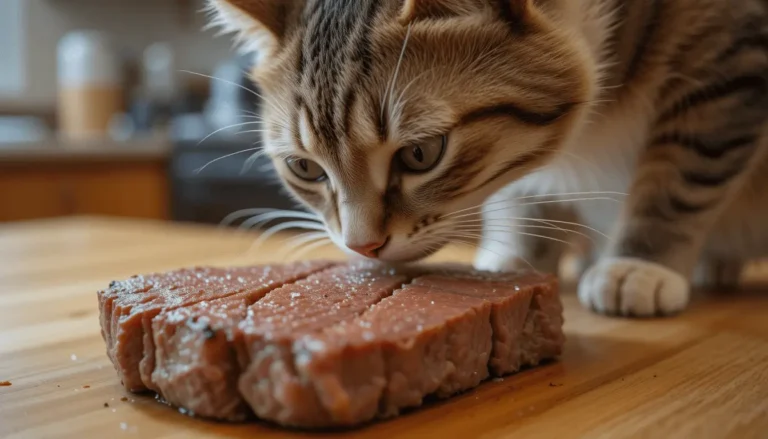Can Cats Eat turkey? Risks, Toxicity, and Safe Alternatives
Introduction
As the aroma of roasted turkey fills the kitchen during Thanksgiving, your curious feline weaves between your legs, meowing for a taste. You pause—can cats eat turkey, or is this holiday staple a hidden danger? While turkey isn’t inherently toxic, the devil’s in the details. Let’s unpack the risks, toxic ingredients to avoid, and how to safely share this protein with your cat
Is Turkey Safe for Cats? The Basics
Plain Cooked Turkey: The Gold Standard
Properly prepared, unseasoned turkey meat may be offered to felines as an infrequent dietary supplement when following specific safety protocols. The key factors are:
- Preparation method: Boiled, baked, or roasted without any additives
- Part selection: Lean white meat is preferable to dark meat or skin
- Temperature: Fully cooked to eliminate salmonella risk
Unlike processed deli meats packed with sodium and preservatives, plain home-cooked turkey offers a natural protein source. However, even with proper preparation, there are important caveats to consider regarding frequency and quantity.
Nutritional Benefits of Turkey for Cats
Turkey provides several valuable nutrients for felines:
- High-quality animal protein for muscle maintenance
- Turkey contains taurine, an essential amino acid critical for maintaining feline cardiovascular function and retinal health
- Turkey provides B-complex vitamins (including niacin, B6, and B12) that play vital roles in energy metabolism and maintaining healthy skin and coat
According to veterinary nutritionists at Tufts University’s Cummings School of Veterinary Medicine, animal-based proteins like turkey are particularly beneficial because cats are obligate carnivores with specific dietary requirements that plant proteins can’t satisfy.
Portion Control: Why Moderation Matters
Even with safe preparation, portion control is crucial:
- Treats should never exceed 10% of daily calories
- For an average 10-pound cat, this equals about 1-2 small bites of turkey
- Excessive consumption may trigger pancreatic inflammation or disrupt essential nutrient ratios in feline diets
A helpful comparison: The amount of turkey safe for a cat is roughly equivalent to one dice-sized piece per serving. This small quantity allows your cat to enjoy the flavor without risking digestive upset or weight gain.
Hidden Risks and Toxic Ingredients in Turkey for Cats
The Danger of Cooked Bones
Cooked turkey bones pose multiple threats:
- Splintering risk: Can puncture digestive tract
- Choking hazard: May become lodged in throat
- Intestinal blockage: Sharp fragments can cause obstructions
Veterinary emergency clinics report a 23% increase in bone-related incidents during holiday seasons, according to Pet Poison Helpline. Always triple-check for stray bones before sharing turkey.
Toxic Seasonings to Avoid
Common turkey preparations often include:
- Onions, garlic, and their powdered forms contain compounds that induce oxidative damage to feline red blood cells, leading to potentially life-threatening hemolytic anemia.
- Excessive sodium from salt and high-fat dairy like butter can cause hypernatremia and digestive disturbances in felines.
- Herbs like sage – may contain essential oils toxic to cats
A startling fact: Just 1/8 teaspoon of onion powder per pound of body weight can damage a cat’s red blood cells. When in doubt, stick to completely plain turkey.
Fat and Skin: Pancreatitis Triggers
The risks of fatty turkey parts include:
- Pancreatitis: Inflammation of the pancreas
- Obesity: High-calorie density promotes weight gain
- Digestive upset: Greasy foods cause vomiting/diarrhea
Veterinary studies show that high-fat meals increase pancreatitis risk by 40% in cats with previous episodes. To minimize health risks, carefully trim away all skin and excess fat before offering turkey to your cat.

Safe Alternatives and Feeding Guidelines
Vet-Approved Turkey Preparations
For maximum safety:
- Boil boneless, skinless breast in plain water
- Cool completely to room temperature
- Shred into tiny pieces (no larger than pea-sized)
This method eliminates risks from bones, fat, and seasonings while preserving the protein benefits cats enjoy.
Commercial Turkey-Based Cat Foods
Reputable brands offering safe options:
- Freeze-dried turkey treats (single-ingredient)
- Wet foods with turkey as first ingredient
- Prescription turkey formulas for sensitive cats
These products undergo rigorous testing to ensure proper nutrient balance and safety standards that home-prepared foods may lack.
When to Avoid Turkey Entirely
Certain cats should never eat turkey:
- Those with poultry allergies (itchiness, vomiting after eating)
- Cats with pancreatitis history
- Kittens under 6 months (digestive systems too delicate)
Consult your veterinarian before introducing turkey if your cat has any pre-existing health conditions or dietary restrictions.
Conclusion
- While the answer to “Can cats eat turkey?” is technically yes, the complete picture requires careful attention to:
- Preparation methods (plain, boneless, skinless)
- Portion control (tiny amounts infrequently)
- Vigilance about additives (no seasonings ever)
By following these guidelines, you can safely indulge your cat’s curiosity about turkey while avoiding the numerous potential pitfalls. Remember: When uncertain, always err on the side of caution and consult your veterinarian for personalized advice tailored to your cat’s unique health profile.
For further reading on feline nutrition, visit the American Veterinary Medical Association’s resource center.
Additional Resources:
FAQs: Your Turkey Safety Questions Answered
Can cats eat turkey deli meat?
No. Deli meats contain:
- Dangerous sodium levels (200-300mg per slice)
- Preservatives like nitrates linked to cancer
- Garlic/onion powders in seasoned varieties
Safer alternative: Rinse plain cooked turkey under water to remove surface sodium if you must share.
What if my cat ate turkey bones accidentally?
Take immediate action:
- Don’t induce vomiting (may cause esophageal damage)
- Watch for symptoms:
- Gagging
- Lethargy
- Bloody stool
- Contact your vet or Pet Poison Helpline immediately
How often can cats eat turkey?
Frequency guidelines:
- Healthy cats: 1-2 times weekly as treat
- Overweight cats: Once monthly
- Cats with kidney disease: Avoid due to high phosphorus content







